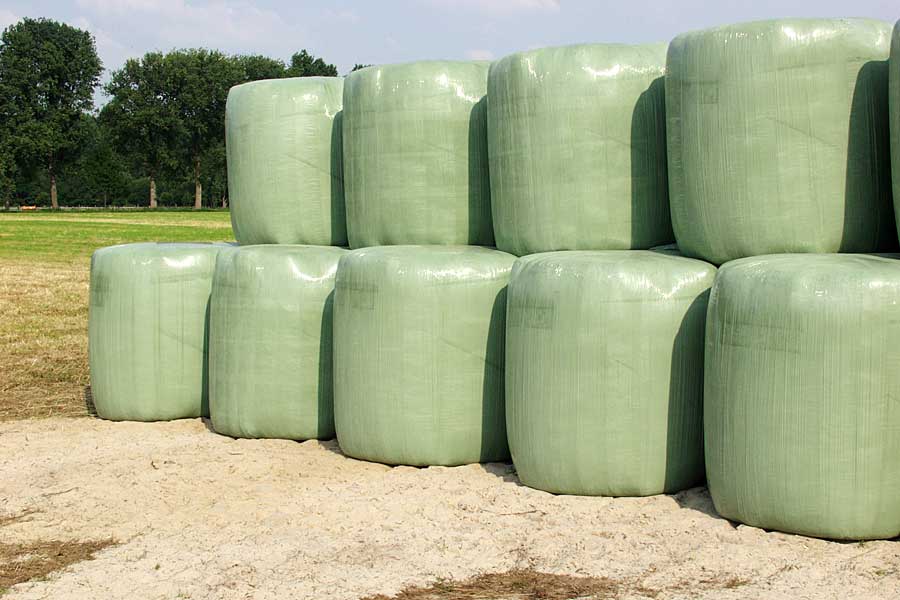General Information
General Information
The production of baled silage in a professional way provides cattle and horses with high-quality basic feed. Like in a clamp / silage-pit forage goes through the same fermentation process which makes it storable for a long time.

Baled silage is popular as round or square bales. Round bales come with a diameter up to 1,40 m and an average weight of 300 kg (significantly higher at low DM). Especially suitable for private horse keepers are mini-roundbales. With noticeably less weight they can easily be handled. Square bales are estimated by contractors and farmers who have to deal with larger amounts of crop.
Particularly in hilly regions baled silage is known for its numerous advantages. The flexibility of this method allows the appropriate and short-term reaction to different qualities and stages of maturity. You can ensilage when the optimum cutting-time for the forage has come – even small amounts of grass can be harvested safely.
For the storage of bale silage, little more than a solid and clean ground is necessary, special constructional facilities are not necessary. However, the bales should be protected against damages caused by livestock, birds, cats and rodents. A canopy provides additional protection from wind and weather and reduces the direct solar radiation on the baled silage.

When tightly wrapped, baled silage can be conveniently transported and traded. Farmers and contractors can tailor the qualities of their baled silage to customer requirements. The method of making baled silage is not limited to grass. Forage maize, lucerne/alfalfa, sugar beet pulp and other feedstuff can be pressed and wrapped into bales as well.
Silage can be found in nearly every basic feed ration of milk cows. The dust-freeness, the comfortable handling of the bales and the tastefulness of a high-quality silage are also adequate reasons for horse-keepers to take a closer look at the making of bale silage. Last but not least silage-making is less depending on weather conditions than the making of hay.
In order to produce high-quality silage bales, you will find a lot of tips, hints and information on this website which help you to produce a silage rich of nutrients and energy with minimized harvesting losses and a good hygienical status.